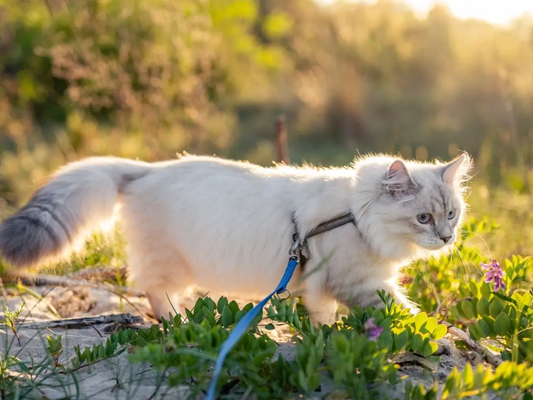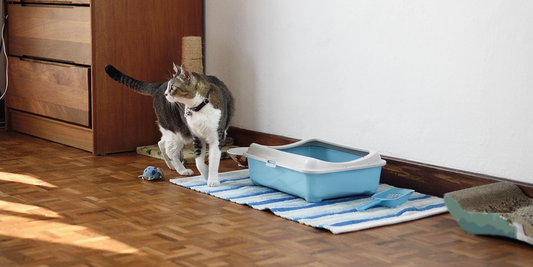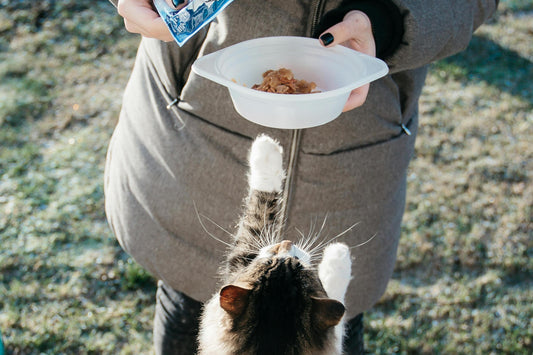In this comprehensive guide, we'll delve into the world of feline behavior and explore the reasons why your cat may be pooping outside the litter box. We'll also provide expert insights, practical solutions, and answers to frequently asked questions to help you maintain a clean and harmonious living environment for both you and your beloved feline friend.
Understanding Feline Behavior: Why Is My Cat Pooping Outside the Litter Box?
To solve any problem, it's crucial to understand its root causes. Cats are generally clean animals, and when they start pooping outside the litter box, it's often a sign that something is amiss. Here are some common reasons:
1. Medical Issues
Cats can develop various health problems that affect their litter box habits. Conditions such as urinary tract infections, gastrointestinal issues, or arthritis can make it painful or uncomfortable for them to use the litter box.
2. Stress and Anxiety
Cats are sensitive creatures, and changes in their environment or routine can cause stress and anxiety. This emotional turmoil may lead to litter box aversion as a way of expressing their discomfort.
3. Litter Box Problems
Sometimes, the issue isn't with your cat but with the litter box itself. Cats have preferences for the type of litter, box size, and cleanliness. If these conditions aren't met, they may seek alternative places to relieve themselves.
4. Territory Marking
Unneutered male cats may mark their territory by pooping outside the litter box. This behavior is often driven by the presence of other cats in the area or a desire to establish dominance.
5. Behavioral Issues
In some cases, cats may develop behavioral problems that lead to inappropriate elimination. These issues can be complex and require patience and understanding to address effectively.
6. Addressing the Issue
Now that we've identified the potential causes of your cat's litter box woes, let's explore how to address and resolve this issue for a happier and healthier feline friend.
7. Consult Your Veterinarian
If you notice any changes in your cat's litter box behavior, the first step is to schedule a visit to your veterinarian. They can rule out any underlying medical issues and provide guidance on treatment if needed.
8. Maintain a Clean Litter Box
Regularly clean the litter box and ensure it's filled with the appropriate type of litter. Cats are more likely to use a clean and inviting box.
9. Address Stressors
Identify and alleviate any stressors in your cat's environment. This may involve providing a safe and quiet space, maintaining a consistent routine, or using calming pheromone products.
10. Behavior Modification
Work with a professional animal behaviorist to address any underlying behavioral issues your cat may have. They can provide guidance on positive reinforcement techniques to encourage proper litter box use.
11. Neutering or Spaying
If your cat is not neutered or spayed, consider this procedure, as it can significantly reduce territorial marking behaviors.
12. Gradual Changes
If you need to make changes in your cat's routine or environment, do so gradually to minimize stress and anxiety.
FAQs
Q: Can a cat's diet affect litter box behavior?
A: Yes, a cat's diet can impact their litter box habits. Sudden dietary changes or intolerances can lead to gastrointestinal upset, causing your cat to avoid the litter box.
Q: Is it normal for kittens to poop outside the litter box?
A: Kittens may require additional training and patience when it comes to litter box use. It's essential to provide a litter box in a convenient location and encourage them to use it.
Q: How often should I clean the litter box?
A: Regularly scoop waste from the litter box daily and change the litter entirely once a week. Keeping it clean is crucial to encourage your cat to use it.
Q: Should I punish my cat for pooping outside the litter box?
A: No, punishing your cat for inappropriate elimination can worsen the problem and cause stress. Instead, focus on identifying and addressing the underlying cause.
Q: Can I use a different type of litter?
A: Yes, experimenting with different litter types may help you find one that your cat prefers. Some cats have specific texture and scent preferences.
Q: When should I seek professional help?
A: If you've tried various solutions and your cat continues to poop outside the litter box, it's time to consult a veterinarian or a certified animal behaviorist for expert guidance.
Conclusion
Understanding why your cat is pooping outside the litter box is the first step in resolving this common issue. By addressing medical, environmental, and behavioral factors, you can create a comfortable and stress-free environment for your feline companion. Remember, patience and persistence are key when dealing with litter box problems. With the right approach, you can enjoy a clean and harmonious home with your beloved cat.








